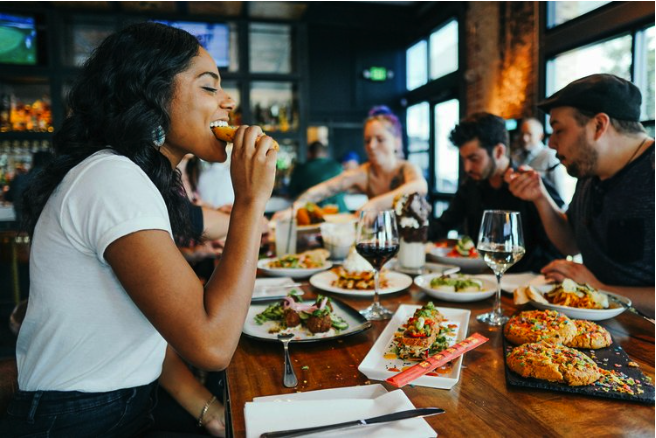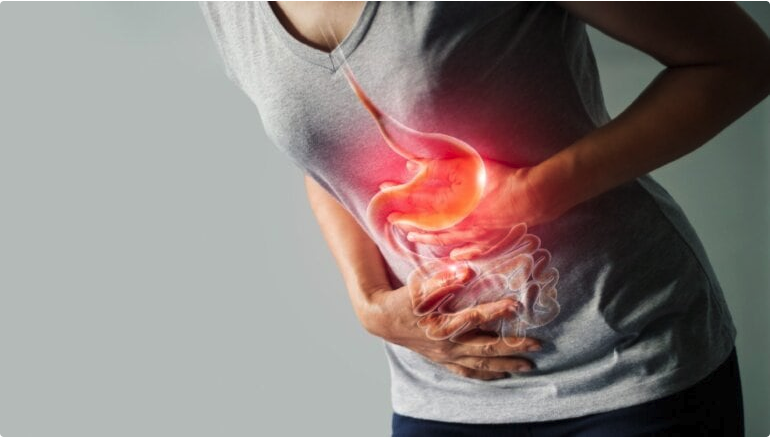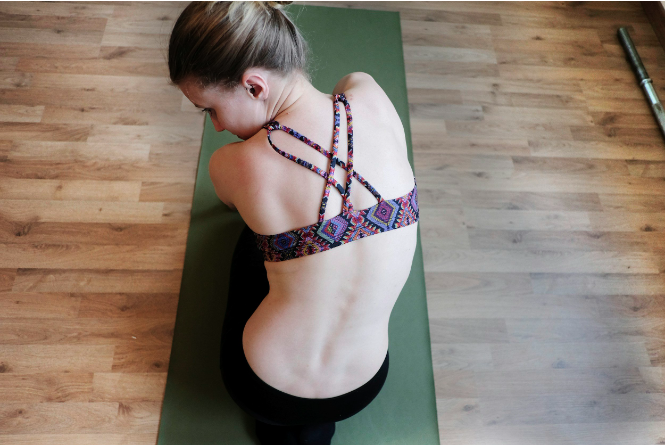
Skip Breakfast, Pay Later: Easy Eats for Non-Morning People
Skipping breakfast might seem harmless, especially if you're not hungry or short on time. Skipping breakfast has become a common habit for many, whether it’s due to a lack of hunger, a busy schedule, or the belief that intermittent fasting will help with weight loss. While fasting can work for some, it often backfires—leading to low energy, poor focus, and intense cravings later in the day. Without breakfast, your body runs on empty after fasting all night, making it harder to power through mentally demanding tasks.

What to Eat When You’re Sick & Have No Energy to Cook or Eat
When you're sick, it's natural to feel tired, weak, and lacking the desire to eat. Resting and sleeping are your body's ways of conserving energy so it can focus on fighting the illness. However, just because you're lying in bed doesn’t mean your body doesn’t need fuel. Even when you’re sick, it’s crucial to keep eating to maintain energy levels and prevent muscle loss.
For women struggling with weight loss, being sick can present additional challenges. Fear of weight gain, loss of appetite, and cravings for comfort foods can disrupt your routine and trigger emotional eating. It’s important to understand that nourishing your body when you’re ill is just as important for your health as it is for your weight loss journey.

Party Smart: How to Enjoy Special Events Without Overeating or Guilt
Parties and special events are moments of joy, celebration, and connection. Yet for many women struggling with weight and emotional eating, these occasions can feel overwhelming and stressful. A common fear is losing control around the special foods available, leading to overeating, binge eating or regret. As a result, some women avoid parties altogether to escape the temptation, missing out on social moments that nourish the soul.
The truth is, you don’t have to choose between enjoying yourself and sticking to your health goals. With a few intuitive eating strategies, you can confidently navigate parties and special events without guilt or deprivation.

How to Have More Time for What Matters & Still Be Productive
Women who struggle with weight loss often find themselves in a cycle where everyone else’s needs come before their own. Whether it's taking care of children, family, work, or friends, there’s always something or someone that needs attention, leaving little time for self-care or activities they truly enjoy. It’s no wonder that many women feel overwhelmed, exhausted, and frustrated, unable to focus on their own health and well-being.

Why ‘Don’t Eat After 6 PM’ Is Terrible Advice for Women—and What to Do Instead
One common piece of diet advice is, “Don’t eat after 6 PM.” On the surface, this sounds simple, but for many women, it’s far from realistic. Imagine this: 8 PM rolls around, and you’re hungry again. You know you won’t make it until midnight or 1 AM when you finally go to bed, so you grab something to eat—and then feel guilty because you “broke the rule.”
This type of advice can lead to a vicious cycle of restriction, guilt, and overeating, especially for women struggling with weight loss and emotional eating. To understand why this one-size-fits-all approach doesn’t work, let’s unpack the science behind eating at night, how your body works during sleep, and why restrictive fasting can be harmful—especially for women.

Eat Out Without Guilt: Simple Tips to Enjoy Your Meal Without Overeating or Missing Out
Do you feel confused when eating out? Don’t know what to order? Then, second guess yourself, order something “safe” or healthy, but later regret you didn’t order what you really wanted? Or are you feeling self-conscious about your food choices when eating in front of others?
I was confused because “I want a hamburger,” but “I should be good and just have a salad.” When you order a salad, you wish you’d ordered a hamburger. On the other hand, if you ordered the hamburger, you wished you had ordered something healthier, such as a chicken sandwich.

What is Your Real Ideal Weight?
When we talk about the "ideal weight," it's common to think of a specific number on the scale—one calculated based on height, age, and activity levels. Most women struggling with weight issues often have an “ideal weight” of their own that they believe is where their happiness lies. Unfortunately, most women who successfully reached their “ideal weight” are still not happy, and they create a new “ideal weight” that is even lower. Eventually, they realize that they can’t get to the new lower weight and feel defeated.
The Myth of the Perfect Number
Unfortunately, society has long propagated the notion that the perfect weight can be boiled down to a simple formula. Charts and calculators abound, offering an “ideal” number that many women chase. However, this approach often neglects the nuanced realities of individual health, body composition, and emotional well-being.

The Truth About Belly Fat: Why Common Solutions Fail Women and What Actually Works
Belly fat is a common concern among women, and while many attribute it solely to diet or lack of exercise, stress plays a significant role in its accumulation. Understanding how stress contributes to belly fat and learning effective strategies to reduce it can make a big difference in achieving a flatter abdomen.

Best Weight Loss App?
From free and paid weight-loss apps to structured programs and one-on-one consultations with dietitians, the choice isn't always clear. Many people consider taking the do-it-yourself (DIY) route using apps or programs, drawn by the convenience and low cost.
Is it really the best for what you pay for?
The Little Known Secret…
Did you know nutrition therapies by a Registered Dietitian are covered by insurance benefits?
Working with an experienced dietitian who understands your unique struggles, especially when insurance can help cover the cost, can offer benefits that far outweigh the appeal of going it alone.

The #1 Root Cause of Weight Gain, Weight Struggle & Body Hate No One Talks About
I started out as a pediatric dietitian, seeing some very complicated and rare genetic disorders and kids with feeding disorders, extreme picky eaters, etc, with great success. Then I started seeing adults for weight loss and soon saw the disappointment in that the conventional weight loss advice of eating less and burning more does not work for most women struggling with weight loss.
It's actually causing more harm, leading to nutrient deficiencies, binge eating, food cravings, gut issues, food sensitivities, hormonal imbalance, auto-immune diseases, anxiety, depression, low self-esteem, and low confidence.
With my unique holistic nutrition therapy approach, I was able to help these women achieve the significant weight loss they'd never seen in years. And yet everyone eventually reverted back to their old eating habits after 2-3 months.

4 Common Self-Sabotaging Weight Loss Mistakes to Avoid to Achieve Your Happy Healthy Weight
Conventional health advice says “eat less calories than you burn”, “eat low fat”, “eat sugar-free”, “exercise like a maniac”, and when all else fail, “let’s pay a surgeon uber bucks to butcher your gullet until it cannot digest or absorb food.”
You exercise with your significant other, husband or boyfriend, do CrossFit, run 5 miles a day, and cycle. Your significant other starts losing weight just as expected. But your weight just won’t budge, or you even gain weight.

Beyond the Scale: 12 Powerful Non-scale Victories to Keep You Motivated and Moving Forward
For many women on a weight loss journey, stepping on the scale can trigger a surge of anxiety, disappointment and self-criticism. The daily ritual of weighing oneself, hoping to see even a slight decrease, often turns into a cycle of frustration.
When the number doesn’t budge, it’s easy to fall into a pattern of negative self-talk. Thoughts like, “I’m weak,” “I’m not good enough,” or “I’ll never get this right,” can quickly take hold, leading to feelings of failure and, all too often, giving up entirely. These overwhelming emotions can spiral into binge eating, undoing previous progress and trapping women in a cycle of discouragement.

Why Do You Feel Lost, Not Knowing What to Eat or How to Eat after Losing a Lot of Weight?
After years of dieting and losing a significant amount of weight through restrictive strategies, the fear of eating has become overwhelming. The thought of eating freely triggers anxiety, as you're afraid of losing control and regaining all the weight you worked so hard to shed.
Restrictive dieting has given you a sense of control—counting every calorie, weighing every morsel, and adhering to a strict eating schedule. But in the process, you've never learned how to eat normally, in tune with your body's natural needs. Now, the realization has hit: you can't maintain a calorie deficit forever, yet the fear of eating "non-diet" foods feels paralyzing.

How Yo-Yo Dieting is Destroying Your Digestion & Sabotaging Your Weight Loss Efforts?
One of the most significant consequences of yo-yo dieting is the body's adaptation to perceived starvation. When calories are restricted for extended periods, the body interprets this as a threat to survival. In response, it shifts into what can be termed "starvation stress mode," a state where metabolic processes slow down to conserve energy.
During this mode, the body becomes highly efficient at storing fat, making future weight loss even more challenging. Moreover, the stress hormone cortisol rises, further contributing to weight gain, especially around the midsection. This hormonal imbalance not only affects weight but also has a profound impact on digestion.

When the Body Remembers: How Past Trauma and Autoimmune Disorders Are Deeply Connected

How to Stop Eating Your Feelings Away?
Emotional eating is often rooted in the desire to suppress or avoid uncomfortable feelings. Food becomes a way to cope with stress, sadness, anxiety, or even boredom. Understanding why this happens is the first step in breaking free from the cycle of eating to manage emotions.
In this article, we’ll explore how people use food to suppress uncomfortable emotions, how food meets emotional needs, and how to take practical steps to stop emotional eating.

IBS: The Real Culprit Behind Constipation, Diarrhea, and Bloating
Irritable Bowel Syndrome (IBS) is a common gastrointestinal disorder that affects the large intestine. It is characterized by a variety of symptoms, including abdominal pain, bloating, gas, diarrhea, constipation, or alternating between the two. While the exact cause of IBS is unknown, it is believed to result from a combination of factors, including gut-brain interactions, food sensitivities, and stress.
Diet plays a significant role in managing IBS symptoms. The foods you consume can either trigger or alleviate symptoms, making it crucial to understand which foods to avoid and which to include in your diet.

Why You Constantly Feel Stressed or Anxious for No Reason
Stress and anxiety can sometimes seem to arise out of nowhere, leaving individuals feeling overwhelmed without a clear understanding of the cause. A key reason behind this is that many people are unknowingly living in a constant state of survival mode, where their bodies and minds are perpetually on high alert.
This heightened state of vigilance is often rooted in past trauma, which can cause the body to unconsciously react to perceived threats, even when no real danger is present. These reactions can manifest as flashbacks or intense feelings of stress and anxiety, triggered by subtle reminders of past experiences. Understanding this connection between survival mode and past trauma is crucial for recognizing and addressing these seemingly inexplicable feelings.

Breaking Free from Ehler Danlos Syndrome (EDS): A Holistic Approach to Healing Body and Mind
Ehlers-Danlos Syndromes (EDS) are a group of connective tissue disorders characterized by hypermobility, skin hyperextensibility, and tissue fragility. These genetic conditions result from defects in collagen or other components of the extracellular matrix, leading to a wide range of symptoms and complications. The variability in EDS presentations can make diagnosis and management challenging, often requiring a multidisciplinary approach that includes medical, nutritional, and psychological care.

What to Do When You Have POTS (Postural Orthostatic Tachycardia Syndrome)?
Postural Orthostatic Tachycardia Syndrome (POTS) is a complex condition that affects the autonomic nervous system, causing a range of symptoms when a person moves from lying down to an upright position. While the exact cause of POTS remains unclear, research suggests that it can be linked to various triggers, including viral infections, autoimmune diseases, and trauma. For those living with POTS, holistic management strategies that encompass dietary changes and mindfulness meditation can play a crucial role in alleviating symptoms and addressing underlying issues such as trauma.